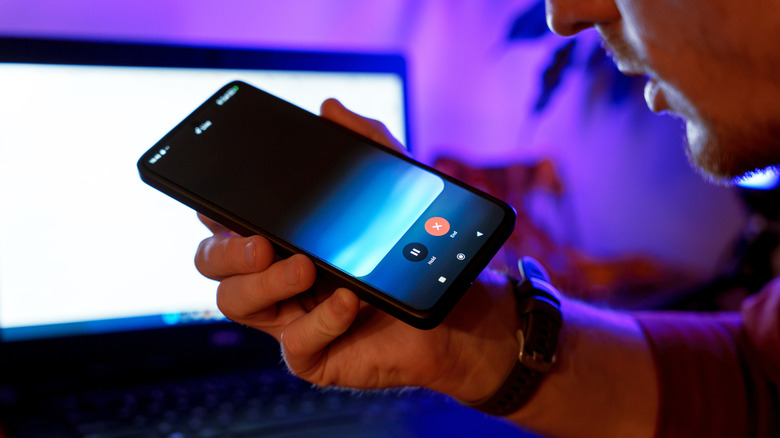The Most Shameful Uses Of AI In Commercials In 2025
The ad industry saw it coming from afar, and so did Big Tech pundits and any person who is connected to the fabric of the internet and social media. AI made a big splash at the Super Bowl 59 fest. Some tried to pass it off as a compassionate agent for human emotional needs. Others hawked a playful side of it atop fancy glasses. From travel companies touting their AI trip planner to Salesforce, top dollars were spent by mega-corporations to regale the virtues of an innovation that poses a tangible threat to human livelihoods.
Of course, its ilk can occasionally get a few facts wrong or even spill the recipe for cooking up bioweapons, but in the grander scheme of billion-dollar balance sheets, we are expected to play along with the daydreams of a helpful digital assistant. Take, for example GoDaddy, which touted an AI assistant that will make logos and prep website design assets (a chore erstwhile designated to human experts) for small businesses, without ever talking about the fact that the AI model may have been quietly trained on a corpus of human-created material that was not duly compensated for.
Google, one of the biggest wolves in the AI domain, flubbed with a cheese fact and then silently erased the evidence of its Gemini AI fumbling. No public admission was made. But yeah, some expert scriptwriter was paid to write a deeply emotional ad spot for the same AI to market its appeal. It's a shameful game, but one that went on brazenly.
Google Gemini
Google set the AI tone with an ad that focused more on real struggles than the two products it was trying to sell — the Gemini AI and its Pixel smartphones. Documenting real human struggles, especially the inevitable reality of growing apart from the people we love, and then shoehorning an AI as a pillar of support in those troubling times was a little too much. There are a few things that are inherently problematic with this approach.
Let's start with the impact of such relationships, which teeter on the edge of an anthropomorphized virtual companionship. Here's what OpenAI, the company which started the whole AI chatbot trend, had to say following comprehensive research:
"Human-like socialization with an AI model may produce externalities impacting human-to-human interactions. For instance, users might form social relationships with the AI, reducing their need for human interaction — potentially benefiting lonely individuals but possibly affecting healthy relationships."
Then there's the risk to privacy. According to experts at Pace University, forming a rewarding connection with an AI agent requires sharing a lot of personal information to really get the desired output. And that means trusting a company, with a not-so-stellar record with privacy, with the most intimate and sensitive details about your life. Also, this is the same company, which, merely a few days ago, revised its sacrosanct pledge, and is no longer averse to using AI for tasks like building weapons, surveillance, and deployment on the battlefield.
Meta AI and camera-armed smart glasses
Talking about privacy and safety, and their intersection with AI, we have Meta. The company aired a Super Bowl ad hawking the eponymous Meta AI aboard the Ray-Ban Stories smart glasses. Let's just say the combination of generative AI and glasses that revive the privacy scares of the doomed Google Glass makes for an uneasy viewing experience.
In the ad featuring two of Hollywood's favorite "Chrises," we see Meta selling the convenience of seamless communication by simply invoking the AI agent living within your wayfarers. No more fiddling with your phone to launch a Google Search (which itself is now loaded with AI garbage) or calling a lawyer. Just summon the onboard AI, and it will handle it for you, as long as you agree to let the AI access your contact details and social accounts, including platforms like WhatsApp.
If the Cambridge Analytica scandal has taught us anything, it's that Meta is no shining knight of data privacy. This is the same company that ran expensive full-page ads to deride Apple when the latter launched a feature that let users prevent an app from tracking their activity. Despite all that show (and how it could suffer losses worth around $10 billion), Meta still tried to skirt around the privacy safeguards and got sued in return.
And let's not forget about the glasses, which come equipped with world-facing cameras. When the first iteration hit the shelves, experts raised their voice about the risks of being recorded without their consent. Meta's solution? The company said the tiny LED lights will blink when a person wearing the smart glasses is recording videos or clicking pictures.
Holland America
For a company that's all about cruise fun, giving humans the recreational pleasure of exploration, an ad chock-full of AI was as antithetical as it gets. Yet, the company went all in with AI to show various phases of human history, in partnership with the History Channel, no less. "AI-generated content was used in nearly every shot of the ad, then touched up with visual effect tools," said an Ad Age report about the advert. The cruise company relied on video-generation AI tools such as OpenAI's Sora engine and other upstarts like Midjourney and Runway to concoct it.
In half a minute, the ad gives a glimpse of everything from the Roman Colosseum to the Egyptian pyramids and Stonehenge, all of which stand in a paradoxical situation to what AI is all about. These historical monuments are living testaments of human efforts and excellence, withstanding the test of time and still remaining majestic centuries later. Generative video AI tools, like Sora, merely offer a crude representation of everything a computing tool has learned from ingesting content created by humans. That includes countless photos and hours of videos captured by humans.
Here's the worst part. Those video-generating AI products may not have ingested all that training material ethically. Due compensation was not given to all the people behind that source material, either in the form of goodwill credit or monetary fee, who captured videos and pictures of these historical monuments and put them on the internet. Sora apparently "borrowed" training material even from fellow AI giant, Google, and its YouTube repository. So much for a journey through the past of humanity, Holland America!
OpenAI
What do milestones like mankind learning to hunt, igniting fire, inventing the wheel, domesticating the horse, naval exploration, running steam-powered rail engine, discovering the light bulb, making the internet, landing on the moon, and creating nanometer-scale silicon chips have in common? Certainly not an AI chatbot aping the voice of a human female. At least not to an average human being. But that's exactly the kind of equivalence OpenAI wanted to draw for its ChatGPT AI assistant.
"The Age of Intelligence." That's the motto of OpenAI's Super Bowl ad spot. There are a lot of angles to dismiss the retro computer graphic-themed ad as another hypeware. So, let me begin at the most fundamental level. Yes, ChatGPT kickstarted the whole AI chatbot and generative AI industry on a commercial level. Yet, OpenAI didn't come up with the underlying transformer architecture that is at the heart of all such AI advancements.
OpenAI is also not the singular best representation of an AI that can do more than just return answers, solve coding problems, make images, and even surf the internet. The likes of Google Gemini can do a lot more. In fact, the leaderboards ranking the "intelligence" of AI assistants change faster than global athlete rankings, so OpenAI's ware is not even the "singular best" product of its kind. And certainly not of the same caliber as those stepping stones of human evolution in the brief ad spot.
It certainly doesn't help that OpenAI has courted lawsuits left, right, and center for training its AI on non-ethically sourced data, which is something human ingenuity doesn't quite co-exist with.

